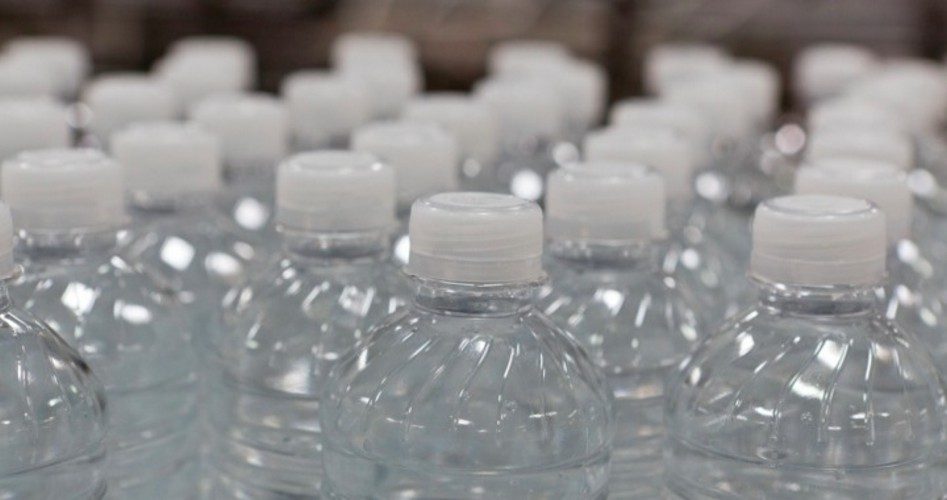
The popular three-term president of the San Francisco Board of Supervisors, David Chiu, unveiled his proposal December 17 that would ban the sale of plastic water bottles on city property. Initially the ban would apply only to sites where there are already alternative water sources such as drinking fountains, but it would eventually apply to all events on San Francisco property. By 2016 the ban would also apply to outside vendors as well.
Chiu declared,
The city shouldn’t be deriving revenue from something that is such an environmentally bad practice….
Given that San Franciscans can access clean and inexpensive Hetch Hetchy [Reservoir] water out of our taps, we need to wean ourselves off our recent addiction to plastic water bottles. [Emphasis added.]
I hope San Francisco can again lead the way, by drinking water without harming the environment or the bottom line.
Chiu floated his proposal earlier this year, taking his cue from similar legislation enacted in January in Concord, Massachusetts, which stated simply: “It shall be unlawful to sell non-sparkling, unflavored drinking water in single-serving polyethylene terephthalate (PET) bottles of 1 liter (34 ounces) or less in the Town of Concord on or after January 1, 2013.” A first offense there will result in a warning, a second will cost the criminal imbiber $25, and a third fine (and thereafter as necessary until behavior has been modified) will be $50.
In Concord some businesses are doing a thriving business selling PET water bottles of 35 ounces, while other customers are just walking to nearby Acton or Bedford where authorities don’t yet criminalize their citizens for drinking water from plastic bottles.
The Concord law was the result of the determined effort of octogenarian activist Jean Hill, who told the New York Times back in 2010: “I’m going to work on this until I drop.” Hill had determined that legislation was the only way to change people’s behavior:
What I’m trying to do with this [law] is to increase barriers to buying single-serve bottle water because in order to help people change, you need to put policies in place that steer them away from buying bottled water and toward considering the many other good alternatives. [Emphasis added.]
Efforts to change people’s behavior have resulted in the ban of the sale of bottled water in 14 national parks as well as at San Francisco’s Outside Lands Music Festival, which has offered “refillable water stations” to customers bringing their own bottles, or selling special event “OSL” stainless steel water bottles with unlimited free lifetime refills. According to OSL, they have reduced plastic water bottle consumption by two-thirds since 2009.
The International Water Bottle Association (IWBA) issued its rebuttal to Chiu’s proposed ban, pointing out that if bottled water isn’t available to consumers, they’ll just buy the sugar-water alternatives instead:
Research shows that if bottle water isn’t available, 63 percent of people will choose soda or another sugared drink … not tap water.
We expect the same consumer response if access to bottled water is restricted in San Francisco, certainly during events where consumers are seeking convenience, reliability and portability.
It added that, in a green environment such as San Francisco, the ban would work against the healthy lifestyle so highly touted by its residents:
Drinking zero-calorie beverages, such as water, instead of sugary drinks is regularly cited as a key component of a more healthful lifestyle. Promoting greater consumption of water … will support the efforts of consumers striving for a healthier lifestyle.
In addition, said the IWBA, nearly 40 percent of PET water bottles are recycled, and those that are discarded “make up less than one-third of one percent of the U.S. waste stream.”
Nationally the number of plastic water bottles purchased is simply staggering. According to iconoclast author Norm Schriever there are 1,500 water bottles consumed every second in the United States, totaling more than 30 billion of them in a year. He calculates that it takes “a fleet of 40,000 18-wheelers just to deliver our bottled water every week!”
More seriously, Schriever also pointed out that most of these plastic bottles wind up either in landfills where they stay forever because they aren’t biodegradable, or in the ocean where they form huge swirling masses of debris known as “garbage patches.” One of the largest is the Great Pacific garbage patch which has been estimated to range in size from between 270,000 square miles to more than five million square miles. Such pollution has generated a vast amount of commentary on solutions, leading many, including activists such as Chiu and Hill, to legislate the cultural change to reduce it. It has also generated a movement known as “free-market environmentalism,” where topics such as the “tragedy of the commons” and private property rights versus government controls are endlessly debated.
In the meantime, silently but steadily, the free market itself is working out solutions to the plastic water bottle “crisis.” For instance, biodegradable plastics already exist and are being used in making plastic knives, forks, and spoons. Some of them are made from raw materials other than petrochemicals that degrade quickly over time, while others are made from petroleum-based products embedded with biodegradable additives — bacteria — that speed up the disintegration process.
Daniel Burd, a student at Waterloo Collegiate Institute in Waterloo, Iowa, has discovered a microbe that “lunches on plastic bags” according to The Woohoo! Report. It’s easy, says Burd: “All you need is a fermenter, your growth medium, your microbes and your plastic bags. This is a huge, huge step forward. We’re using nature to solve a man-made problem.”
What’s encouraging is that the free market, with its incentives to take risks and undertake experiments, is coming up with non-authoritarian answers to the avalanche of debris flowing from the “throw-away society.” In a word, the free market will soon allow consumers to have their water and be able to drink it without penalty as well — in biodegradable plastic bottles.
A graduate of Cornell University and a former investment advisor, Bob is a regular contributor to The New American magazine and blogs frequently at www.LightFromTheRight.com, primarily on economics and politics. He can be reached at [email protected]



